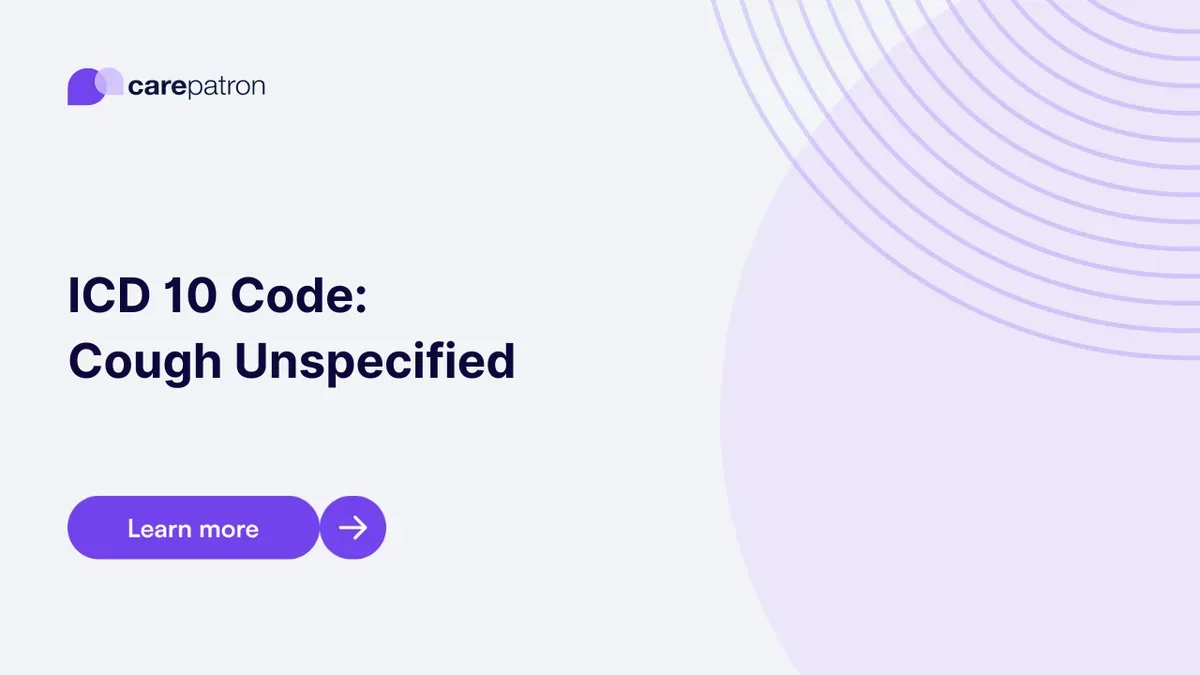
Cough Unspecified ICD-10-CM Codes
Read this short guide to learn about Cough Unspecified ICD codes you can use.
Use Code
Commonly asked questions
Irritants can include strong smells from perfumes and cleaners, smoke from car exhausts and cigarettes, dust from shelves, and pollen, to mention a few.
Respiratory system-related problems like the common cold, flu, asthma, bronchitis, pertussis (whooping coughs), sinusitis, pneumonia, and allergic reactions can cause us to cough.
Examples of various cough types include dry and wet coughs, differentiated by the absence or presence of mucus. Acute coughs emerge suddenly and persist for two to three weeks, while subacute coughs, often stemming from infections, last between three to eight weeks. Chronic coughs exceed an eight-week duration, with refractory coughs being a non-responsive subtype; additionally, some individuals exhibit barking or wheezing coughs, characterized by their distinct sounds.
EHR and practice management software
Get started for free
*No credit card required
Free
$0/usd
Unlimited clients
Telehealth
1GB of storage
Client portal text
Automated billing and online payments
